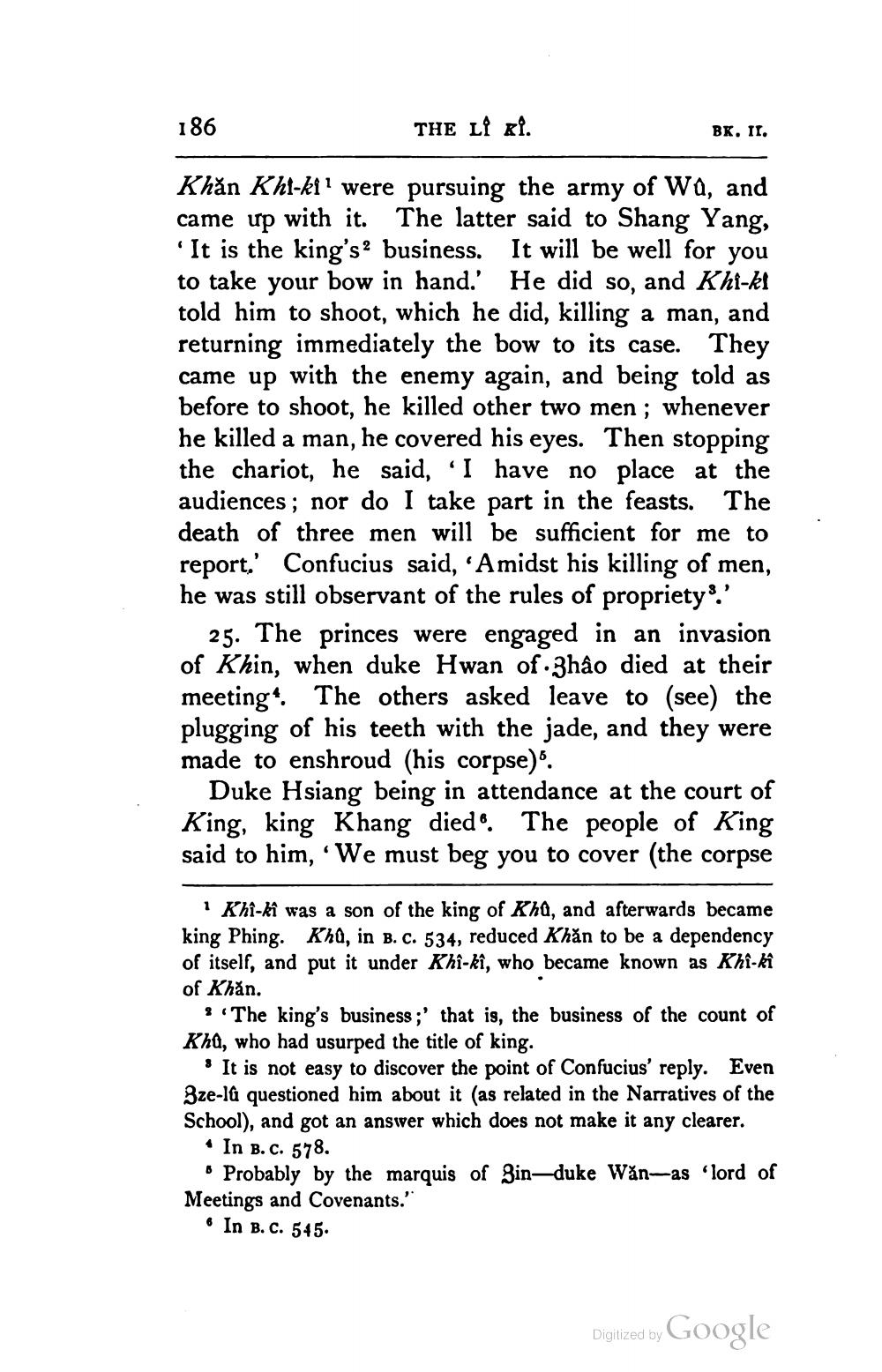________________
186
THE LÎ ri.
BK. II.
Khăn Khi-ki? were pursuing the army of Wa, and came up with it. The latter said to Shang Yang,
It is the king's a business. It will be well for you to take your bow in hand.' He did so, and Khi-kl told him to shoot, which he did, killing a man, and returning immediately the bow to its case. They came up with the enemy again, and being told as before to shoot, he killed other two men ; whenever he killed a man, he covered his eyes. Then stopping the chariot, he said, “I have no place at the audiences; nor do I take part in the feasts. The death of three men will be sufficient for me to report.' Confucius said, “Amidst his killing of men, he was still observant of the rules of propriety
25. The princes were engaged in an invasion of Khin, when duke Hwan of Zhâo died at their meeting. The others asked leave to (see) the plugging of his teeth with the jade, and they were made to enshroud (his corpse).
Duke Hsiang being in attendance at the court of King, king Khang died. The people of King said to him, 'We must beg you to cover (the corpse
Khi-kî was a son of the king of Kha, and afterwards became king Phing. Khu, in B. C. 534, reduced Khăn to be a dependency of itself, and put it under Khi-ki, who became known as Khi-kî of Khăn.
3 "The king's business ;' that is, the business of the count of Kha, who had usurped the title of king.
* It is not easy to discover the point of Confucius' reply. Even Sze-la questioned him about it (as related in the Narratives of the School), and got an answer which does not make it any clearer.
• In B.C. 578.
• Probably by the marquis of Zin-duke Wăn-as lord of Meetings and Covenants."
• In B. c. 545
Digitized by Google




